- Student
- Student
- Akademickie Biuro Karier
- Akademicki Związek Sportowy
- Biblioteka
- Biuro kształcenia doktorskiego i awansów naukowych
- Seminarium Doktorskie
- Szkoła Doktorska
- Centrum Osób o Szczególnych Potrzebach
- Centrum Egzaminowania Elektronicznego
- Dział Współpracy z Zagranicą
- Dziekanat i sprawy studenckie
- Dział rozliczeń ze studentami
- Efekty uczenia się / Sylabusy
- Harmonogram i terminy zjazdów
- Koła naukowe
- Klub MBA
- Legia Akademicka - Szkolenie Wojskowe dla studentów
- Międzynarodowa akredytacja IPMA Student
- Praktyki studenckie/Internships
- Program Ambasadorski
- Samorząd studencki
- Stowarzyszenie Absolwentów i Studentów AWSB
- Studium Języków Obcych
- Strefa Wsparcia
- Stypendia
- Wirtualna Uczelnia
- Kontakt
- Materiały edukacyjne
- Empty
- Kandydat
- Kandydat
- Studia I stopnia
- Studia II stopnia
- Studia jednolite magisterskie
- Studia jednolite magisterskie
- Pedagogika przedszkolna i wczesnoszkolna - studia jednolite magisterskie
- Pedagogika specjalna – studia jednolite magisterskie
- Fizjoterapia - studia jednolite magisterskie
- Prawo - studia jednolite magisterskie
- Psychologia - studia jednolite magisterskie
- Psychologia - studia jednolite magisterskie dla osób posiadających wyższe wykształcenie
- Lekarski - studia jednolite magisterskie
- Empty
- Executive MBA (EMBA) in English
- Studia MBA
- Studia podyplomowe
- Szkoła doktorska i Seminaria doktorskie
- Studia w języku angielskim
- Studia w języku ukraińskim
- Centrum Osób o Szczególnych Potrzebach
- Promocje
- Szkoła Języków Obcych
- Szkolenia
- Zasady rekrutacji
- Kontakt
- Empty
- Nauka i Badania
- Uczelnia
- Uczelnia
- Aktualności
- Baza dydaktyczna
- Business School
- Collegium Medicum – Wydział Medyczny
- Dla mediów
- Do pobrania
- Formularz kontaktowy
- Inwestycje – dofinansowanie z budżetu państwa
- Jakość kształcenia
- Kariera
- Katedry
- Kontakt
- Media o nas
- Nagrody i wyróżnienia
- Newsletter
- Otwarta Akademia Nauki
- O uczelni
- Partnerzy
- Patronaty
- Projekty unijne
- Rada ekspertów
- Standardy ochrony małoletnich
- Strategia
- Strategia Zrównoważonego Rozwoju Akademii WSB do roku 2030
- Uniwersytety Dziecięce
- Uniwersytet Trzeciego Wieku
- Władze
- Wydarzenia
- Wydziały
- Zamówienia publiczne
- Wykładowca
- Empty
Otwórz/zamknij menu dostępności przy pomocy klawisza Enter
Program
9:05 AM – 10:55 AM | Lectures (Part 1)
09:05 AM - 09:15 AM Introduction to the Conference

Educator, Vice-Rector for Development, Director of the Center for Quality and Innovation at WSB University. She is a member of evaluation teams for international higher education accreditation institutions such as CEEMAN and ACEEU. A passionate advocate of modern teaching methods and the use of technology in adult education. At WSB University, she is responsible for digitalization and supporting the implementation of the “Digital AWSB” strategy.
09:15 AM - 09:55 AM The Future as a Tool in Business and Education
Can the future be learned? Or perhaps predicted? Maybe even designed?
In this talk, I will demonstrate how the logic of futures thinking helps various organizations navigate change by actively shaping strategies, business models, and educational programs. Using specific tools, I will show how working with signals of change, scenarios, and backcasting becomes a method for building resilience, fostering innovation, and engaging teams. And why, according to the UN, future literacy is becoming one of the key competencies of the future.

CEO of Greenhat Innovation and co-founder of the FutureS Thinking Group. He is a business and public service strategist, service and innovation designer. His main goal is to reduce complexity and turn possibilities into concrete solutions through the use of service design methodology, customer experience building, and FutureS Thinking. He develops new business models, innovative products, and services based on future customer needs.
As a strategist, he has worked with a wide range of clients, including numerous banks and financial institutions (ING Bank, Santander Bank, mBank, Autoay), e-commerce platforms (Allegro, X-KOM), insurance companies (Allianz, Ergo Hestia, PZU), mobility and industrial automation firms (Volkswagen Poznań, Siemens), owner-led companies (YES, Zyguła, Gerlach, Coccodrillo, Solano), retail chains (Pepco, Żabka, Rossmann), the education sector (SWPS University, Merito University, TEB Edukacja, ŻAK), as well as public institutions and local governments including the Gdańsk Metropolis, the City of Poznań, and the City of Wrocław.
He is the co-creator and long-time head of postgraduate studies in service design at SWPS University, where he also led numerous courses on value proposition development and business model design. He initiated Poland’s first postgraduate program in Designing the Future.
In 2022, he co-authored the book “POTOTYPING 2040” with Zuzanna Skalska. This publication introduces readers to a landscape of possible future scenarios and inspires long-term thinking about change—helping them prepare “here and now” for the New Order in the turbulent VUCA era.
09:55 AM - 10:55 AM Lessons learnt about creativity spaces: CERN IdeaSquare
The aim of this talk is to share with the audience a reflection on the key lessons learned from a decade of experience at CERN IdeaSquare. Over the past ten years, IdeaSquare has served as a unique experimental space within CERN, where innovation, collaboration, and education intersect. This presentation will explore some of the core insights that have emerged from this journey. The talk will adopt a thematic structure, weaving together a series of conceptual "strokes" or focal points. These start with the foundational purpose behind IdeaSquare, what drives it.
The theme of pedagogy will be central, examining how learning processes have been designed, disrupted, and reimagined in this unconventional educational setting. Another significant thread will be the difficulty of being different, highlighting the tensions and opportunities that come with challenging traditional academic norms. This includes reflecting on what it takes to sustain a space that thrives on experimentation and sometimes goes against the grain of standard practices.
Finally, the talk will engage with the growing influence of Artificial Intelligence, particularly in the context of learning environments and how and why the role of teachers and educators will be more important than ever. Overall, this talk aims not only to share experiences but to spark thinking and dialogue, therefore inviting the audience to as well share in the context of education, innovation, and the human role in an increasingly automated world.

Holds a degree in Physics from the Complutense University of Madrid, Spain, and a PhD in Material Science from the University of the Basque Country, San Sebastian, Spain. He completed postdoctoral research at the Massachusetts Institute of Technology (MIT), where he also served as a Teaching Assistant in Semiconductor Processing Technology within the Department of Materials Science and Engineering. Dr. Garcia Tello has held significant positions in industry, including roles at Philips and NXP Semiconductors, specializing in micro/nanoelectronics and biotechnology. He later served as Contracts & Programmes Manager at the Aerospace and Defence Industry Association of Europe.
Additionally, he has worked as a consultant with PNO Consultants, advising both private and public sector organizations in the chemical and ICT sectors on EU innovation programs. Actively involved in European Commission innovation initiatives and funding programs, Dr. Garcia Tello has authored over 70 peer-reviewed scientific publications and holds more than 10 international patents in micro/nanotechnology and biotechnology. He has contributed to two books and is the recipient of notable awards, including NXP Semiconductor’s Golden Patent of the Year, the European Falling Walls Award for Innovation Management and the Millennium Mathematics Project New Writers Award for Science Divulgation from Cambridge University.
At CERN, Dr. Garcia Tello has served as the Knowledge Transfer (KT) Liaison Officer, where he helped expand CERN’s industrial partnerships. Currently, he is the section head of CERN’s EU Office, where he leads the development of new EU-funded projects and initiatives. He is also an active member of the European Physical Society and the International Union of Pure and Applied Physics, where he provides expertise in innovation policy and strategy
10:55 AM - 11:05 AM Break
11:05 AM – 12:45 PM | Lectures (Part 2)
11:05 AM - 12:05 PM Enhancing students’ self-directed learning in Challenge-based learning curricula
Challenge-Based Learning (CBL) is no longer an emerging trend; it is a robust educational approach that directly responds to the need for interdisciplinary, impact-driven, and future-oriented education. Rooted in the values of open inquiry, co-creation, and societal relevance, CBL empowers students to connect knowledge to action and to address real-world challenges.
This presentation explores how CBL can be intentionally designed to foster students' self-directed learning—an essential component for developing ownership, critical thinking, collaboration, and systems thinking. By aligning curriculum design with the principles of CBL, educators can better support learners in becoming resilient professionals and responsible global citizens.

Works at Eindhoven University of Technology (TU/e) in the Netherlands already for 17 years. As Strategic Advisor in Innovations in Teaching & Learning, she manages programs at university and curriculum level. Sonia is the Program Manager of the TU/e Academy for Learning & Teaching and manages Challenge-based Learning activities and innovation projects across the university.
Sonia holds a PhD on education, and she is specialized in active learning methods (e.g. flip-the-classroom, Problem-based learning and Challenge-based learning, etc.) and has numerous publications as educational researcher in the field of engineering education. She has more than fifteen years’ experience in the design of development programs for teachers’ professionalization, projects and training courses on educational innovation. Sonia counts with broad international experience in educational projects in Europe, Africa and Latin American countries supporting universities in the field of curriculum development, and in transforming education.
12:05 PM - 12:45 PM "Rat34", "Skibidi" — sounds strange? That’s just the beginning.
3LAB: The Innovation Studio at III High School in Gdynia is a real-world social platform with its own ethical code — an educational ecosystem, a community that shares knowledge, time, and skills, and supports the development of innovative projects. It’s a space where all studio-created content is shared under Creative Commons licenses. It’s the table we all gather around — the starting point of our journey. It’s the people sitting at that table, creating and following shared “recipes.”
It’s ethics, ideas, processes, and solutions. It’s modeling, concepts, and strategies. It’s trends, cross-sector analysis, management, and coordination. It’s task forces tailored to real-time needs.
We may not be interested in the casinos of Las Vegas, but Danny Ocean’s way of working isn’t foreign to us. Extreme research drones, flexible endoscopes, smart bottles, lunar base models, medical inventions, community projects designed for pandemics and crises...
This community includes students, alumni, scientists, experts, teachers, school staff, foundations, universities, agencies, institutions, private companies, and friends. The initiative is aimed primarily at students of III High School in Gdynia, but we also welcome guests from other schools — even elementary ones. If a student knocks on our door, we’re happy to take them in.
What we do goes far beyond the official curriculum. The scope of our activities has no limits. We’ve reached the stratosphere. And that’s what our story is about — an unexpected puzzle, where we’re not just a single important piece, but play many key roles.

Leads the 3Lab Innovation Studio at III High School in Gdynia

A student of the IB program at III High School in Gdynia. One of the leaders of the 72h project, co-organizer of the “3M” event, and organizer of the Perspektywy youth conference. She participates in academic competitions, and her interests include economics, entrepreneurship, and philosophy. In addition, she plays the drums and tennis.
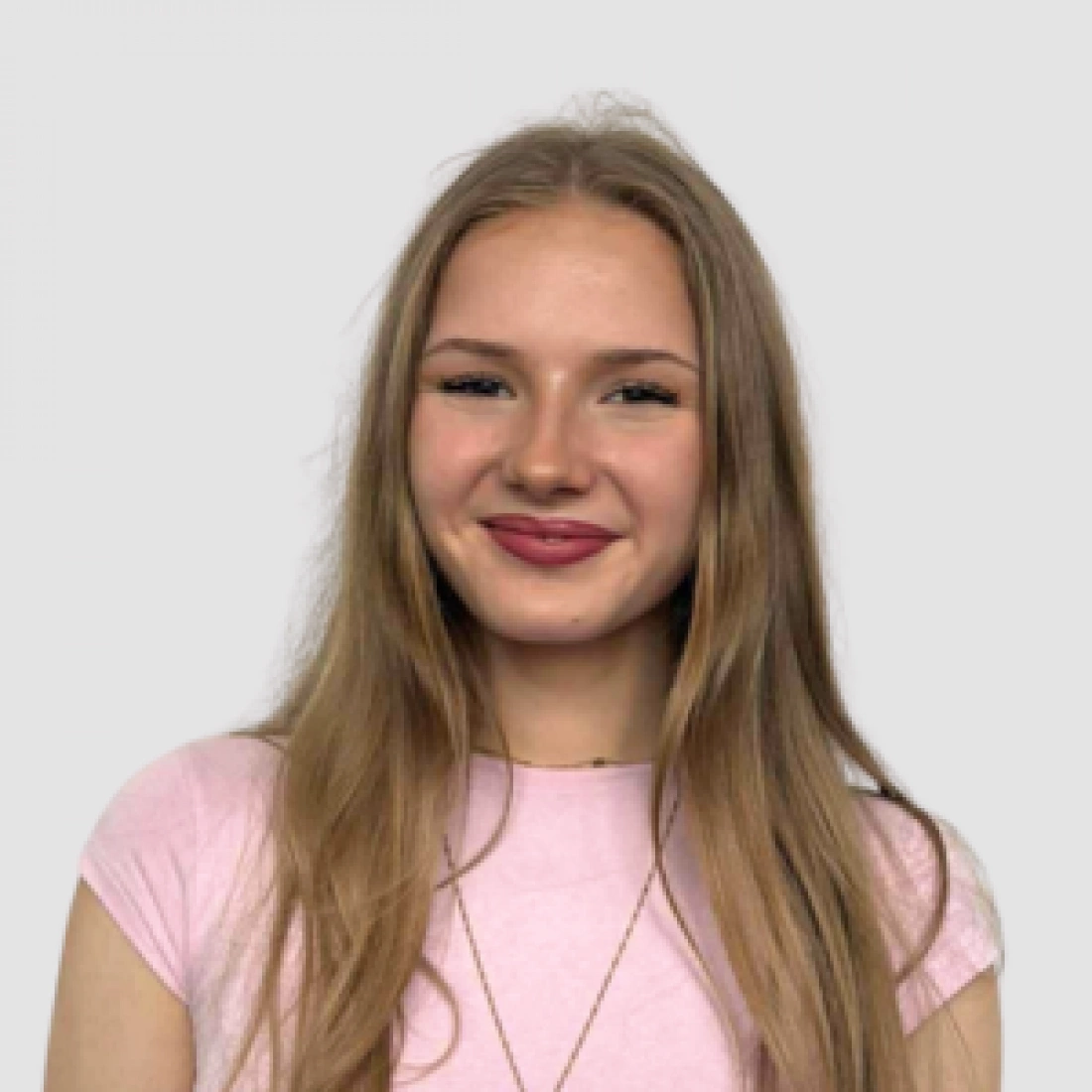
A student participating in the Middle Years Programme at III High School in Gdynia. She skillfully combines learning with social activism, engaging in school life and participating in youth events. She took part in the “Literacy for Democracy and Security” conference, among others. Her passions include music and singing, as well as psychology.
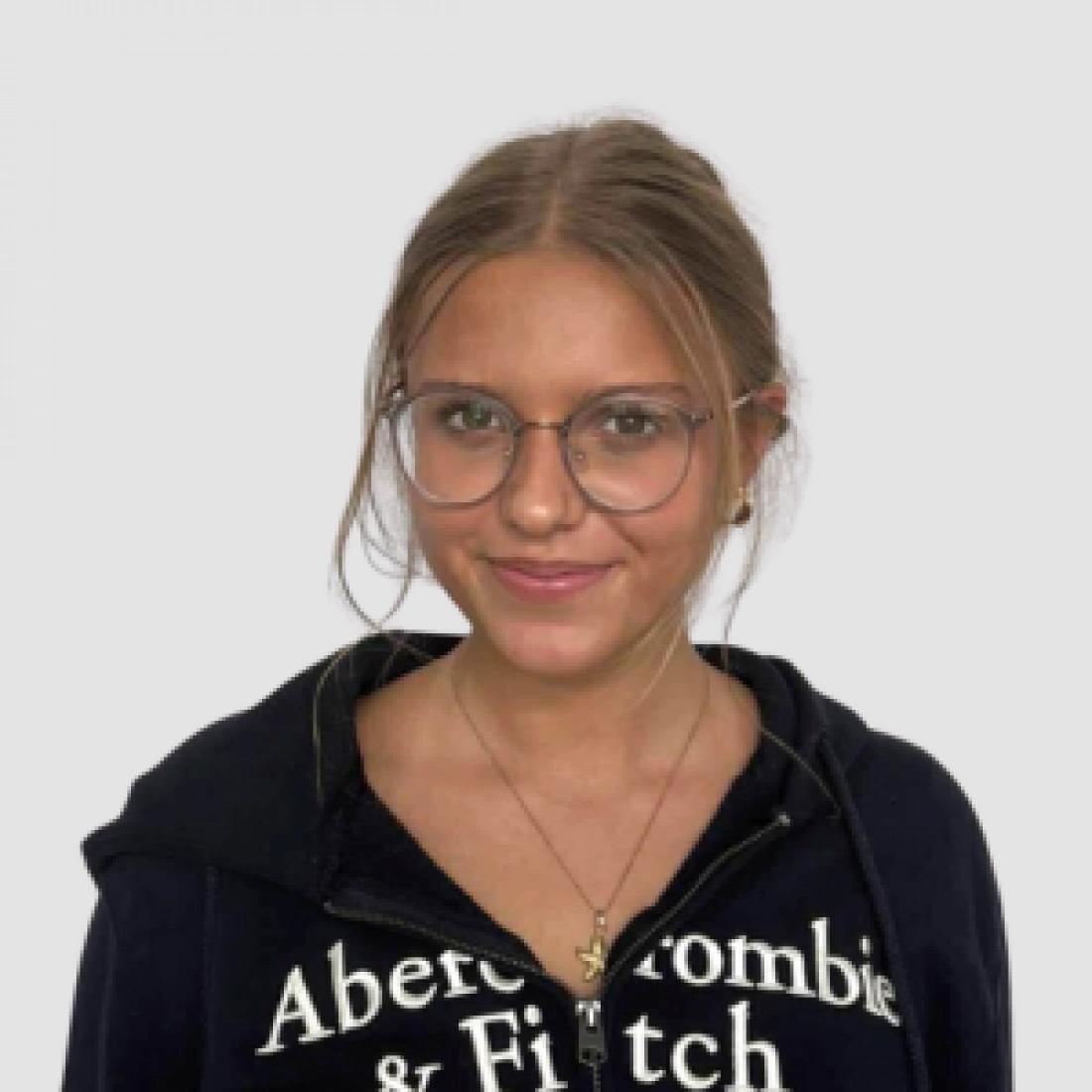
A student of the Middle Years Programme at III High School in Gdynia. She is involved in social projects and actively participates in conferences such as “Literacy for Democracy and Security.” Her main interests focus on psychology, economics, but also acrobatics and music.
12:45 PM - 12:55 PM Break
12:55 PM – 2:10 PM | Presentations (Part 3)
12:55 PM - 1:35 PM The More We Measure, the Less We See What Truly Matters: Why the Traditional Grading Model Has Run Its Course. Learning Processes in the Age of GenAI – Insights from Research
The traditional assessment model, focused on end results, is losing its developmental and diagnostic value — and this isn’t a new problem. Large language models can generate correct answers, but they create an illusion of mastery and act as scaffolding that replaces deep thinking. The more we focus on measuring outcomes, the less we see the learning process itself — what the learner is grappling with, and who they are becoming in the process. We need a new way of thinking about assessment, one that includes the path to the goal, self-reflection, and the ethical use of AI as part of cognitive development.This session will explore how to design assessment strategies that are resistant to the illusion of mastery and the outsourcing of thought. We’ll also consider whether working with language models has shifted Bloom’s linear taxonomy of learning objectives into a looping, process-oriented model — one where creating is no longer just a final stage.

I am the head of the Center for Modern Education (www.cne.pg.edu.pl) at Gdańsk University of Technology (since 2020), a biologist, researcher, and university lecturer (since 1999). My passion lies in designing learning ecosystems rooted in the latest neuroscience research and grounded in empathy for others’ needs. I am deeply fascinated by the search for innovative solutions in education, and my dream is to help bring about real, systemic change in Polish education. I am a vocal critic of traditional grading and the oppressive education system. My core areas of expertise include: educational transformation, neuroscience, gamification, active learning, new technologies, non-graded assessment, and the role of AI in education. For over 25 years, I’ve taught children, youth, and adults using original, unconventional methods and tools — including building motivational systems (I’ve been applying my own version of gamification in education since 2013). New technologies are a means to an end for me, not an end in themselves.
1:35 PM - 2:10 PM A Short Path to Educational Immersion: Scrollytelling and Videotelling in Engaging (Not Only) Higher Education University
In the face of rapidly evolving ways students absorb information, there is an increasing need to redefine teaching approaches — especially in academic settings. Traditional methods often fall short of the expectations of a generation raised in a world of short-form content, interactivity, and instant access to knowledge.
This session aims to address these challenges by presenting two modern narrative approaches — scrollytelling and videotelling — as effective tools for enhancing engagement, focus, and knowledge retention. Both techniques are grounded in well-established pedagogical theories and adapted to the realities of contemporary education.
The presentation consists of three main parts:
- Context and Diagnosis – An analysis of modern students' learning styles and the cognitive impact of social media on their habits and attention spans.
- Scrollytelling – An introduction to this narrative technique based on scrollable, multimedia-rich stories, including examples of educational materials built in this format.
- AI-powered Videotelling – A look into the potential of creating engaging video content using cutting-edge tools such as avatar generators, text-to-video platforms, and AI-assisted video editing software.
As part of the session, we will also present an original educational model — the Immersive Narrative Strategy (INS) — which integrates scrollytelling and videotelling with activating methods such as Case-Based Learning, Problem-Based Learning, and Socratic questioning. The session combines theory and practice — all discussed concepts will be illustrated with real-life implementations and live demonstrations of selected tools.

Methodologist at the Center for Modern Methods and Educational Technologies at WSB University. A film scholar, media expert, and e-learning specialist. He is a graduate of postgraduate programs in Journalism, Cultural Management, Gender Studies, and E-learning Design and Implementation. A certified trainer in digital competencies (Facebook) and media education. Maciej is a teacher and lecturer, as well as a trainer in film and media education and methodology of remote learning. He is an expert in digital and cultural competencies and a passionate advocate of new technologies.

An IT specialist with a passion for educational technologies. A hands-on IT practitioner interested in applying modern tools in teaching. He regularly follows trends in social media, analyzing user engagement mechanisms on platforms such as Instagram, TikTok, and Facebook. Based on these observations, he creates interactive e-learning materials, adapting proven solutions from social media to serve educational purposes. He experiments with scrollytelling and videotelling — techniques that have evolved from content-scrolling behaviors in social media — adjusting them to the needs of students accustomed to dynamic digital content. His interests include the practical use of AI in creating educational materials and the application of active learning methods in the learning process.
2:25 PM – 3:55 PM | Good Practices Session
Room numbers are listed below, next to the presentation topics.
2:25 PM - 2:55 PM Don’t Wait – Act. On a Community That’s Changing Teaching Here and Now (Room 1)
Dynamic technological changes mean that lecturers increasingly have to face the challenges of new educational tools (including generative AI tools) on their own. That’s why building a community of practice—a space for mutual support, sharing experiences, and jointly shaping the teaching of the future—becomes so important. Without it, each of us struggles individually instead of changing the system together.
The presentation will showcase concrete examples of teaching activities carried out by lecturers from WSB Merito Universities—members of our AI in Teaching Ambassadors Network—that are already having a real impact on the quality of student education. The reference point will be the WSB Merito Universities course “AI as Your Teaching Assistant” (its third edition starts in October), but the main focus will be on the outcomes of this program and the gradual transformations taking place within our Group’s institutions.

Responsible for training and development programs for academic lecturers, instructors, and teaching methodologists within the Merito Universities Group. A graduate of Adam Mickiewicz University in Poznań, majoring in Management and Marketing; a certified trainer and business consultant with over 20 years of professional experience in Poland and abroad. She also works at the intersection of education and culture as the founder of the World of Possibilities Foundation, which has supported educational and artistic initiatives since 2010.
Since 2024, she has served as Program Director of the Merito Universities' course "AI as Your Teaching Assistant” — a 40-hour practical program designed to help university lecturers effectively use generative AI tools in their teaching practice.
Barbara combines design thinking with a deep understanding of educational challenges. She strongly believes that educational transformation begins with local communities and everyday, courageous decisions that reshape the learning experience for both students and educators — and this is precisely what she will speak about during her session.
2:25 PM - 2:55 PM Reinventing Assessment in the Age of AI: Practical Tools and Templates for Implementation (Room 2)
This 20-minute session delivers ready-to-implement solutions for transforming assessment practices in response to AI integration in higher education. Participants will receive practical tools, templates, and frameworks they can immediately deploy in their courses.
Live Demonstrations and Hands-On Components:
- Formative Assessment: Live demo of AI-powered quiz generation showing how to create adaptive assessments that provide instant, personalized feedback to students. Participants receive prompt templates for generating formative assessments in their subject areas.
- Authentic Assessment: Interactive creation of case study assessments where students must critique AI-generated content, develop multimedia presentations, or solve real-world problems using AI tools as collaborators rather than replacements. Participants leave with a library of authentic assessment scenarios.
- Process-Based Evaluation Tools: Demonstration of rubrics that evaluate not just final products, but students' collaboration process with AI tools. This includes documentation templates showing how students engage with, critique, and build upon AI assistance throughout their learning journey.
Practical Implementation Focus:
The session addresses three critical areas with hands-on solutions: transforming traditional formative assessments (quizzes, homework) using AI for personalized feedback, creating authentic assessments that mirror real-world AI use in professional settings, and developing evaluation methods that assess both learning outcomes and AI literacy skills.
Participants will experience tools in action, receive implementation templates, and leave with resources for immediate deployment in their courses. This session provides the practical foundation needed for faculty to confidently redesign assessment practices while maintaining academic integrity and enhancing student learning outcomes.
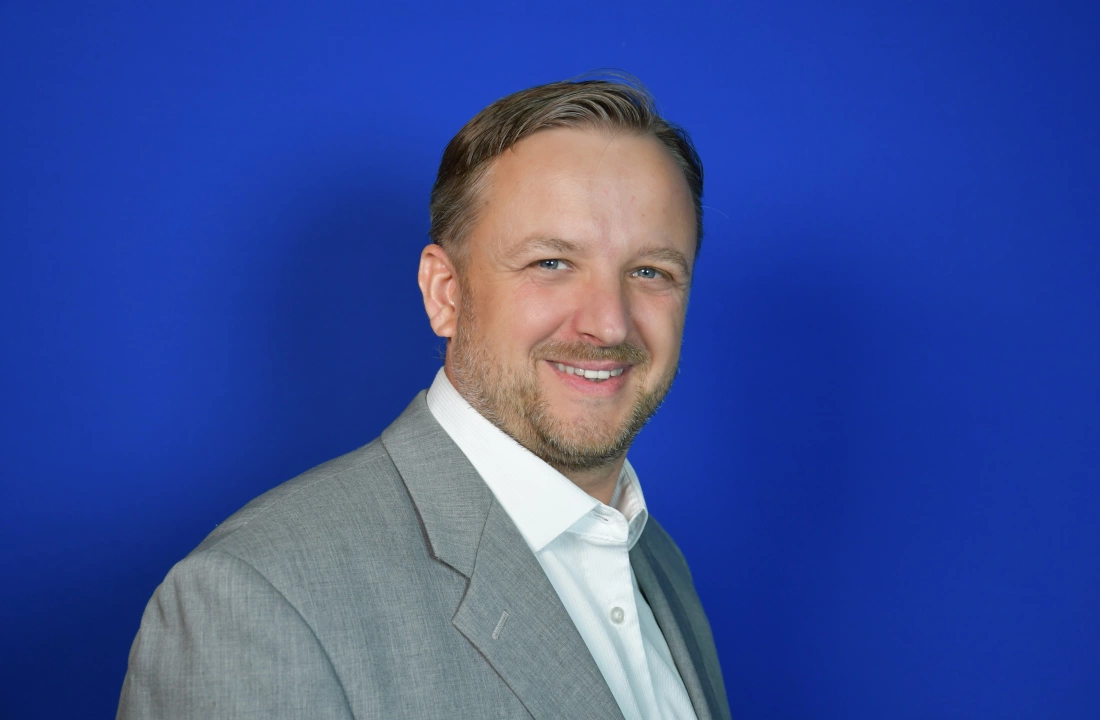
Associate Director of Academic Technology and Learning Innovation at the University of Illinois Chicago and Faculty Fellow for Teaching with AI. With over 20 years in higher education, he specializes in AI-driven learning analytics, gamification, and student success. A winner of the Amazon AI Hackathon and holder of a U.S. e-learning patent, he currently chairs the EDUCAUSE Student Success Analytics Steering Committee and serves on the EDSAFE AI Alliance. His work bridges innovation, technology, and student well-being.
2:55 PM - 3:25 PM CRAFT + AI: How to Practice Future Skills in Higher Education Before They Disappear
In my session, I will present my original didactic model CRAFT (Critical–Reflective–Action-Oriented–Flexible–Thinking), developed in response to the growing need to foster future skills in higher education. The model was created from the belief that critical thinking, reflection, creativity, and collaboration—the foundations of 21st-century learning – are increasingly being replaced by formulaic tasks and the automation of the teaching process.
In a world where students often use AI to generate “assignment-ready” work rather than to support their thinking process, learning becomes superficial.
During the session, I will demonstrate how to use AI as a tool that supports thinking, action, and reflection – not as a shortcut. Participants will gain access to a GPT-powered virtual assistant designed to help generate lesson scenarios aligned with the CRAFT model and select prompts that foster the development of future skills.
In addition, I will share practical templates, micro-tasks, and examples of AI applications. The aim is not only to inspire but also to provide ready-to-use tools that can be implemented immediately. This is an invitation for educators who want to teach in harmony with technology—without giving up on thinking.
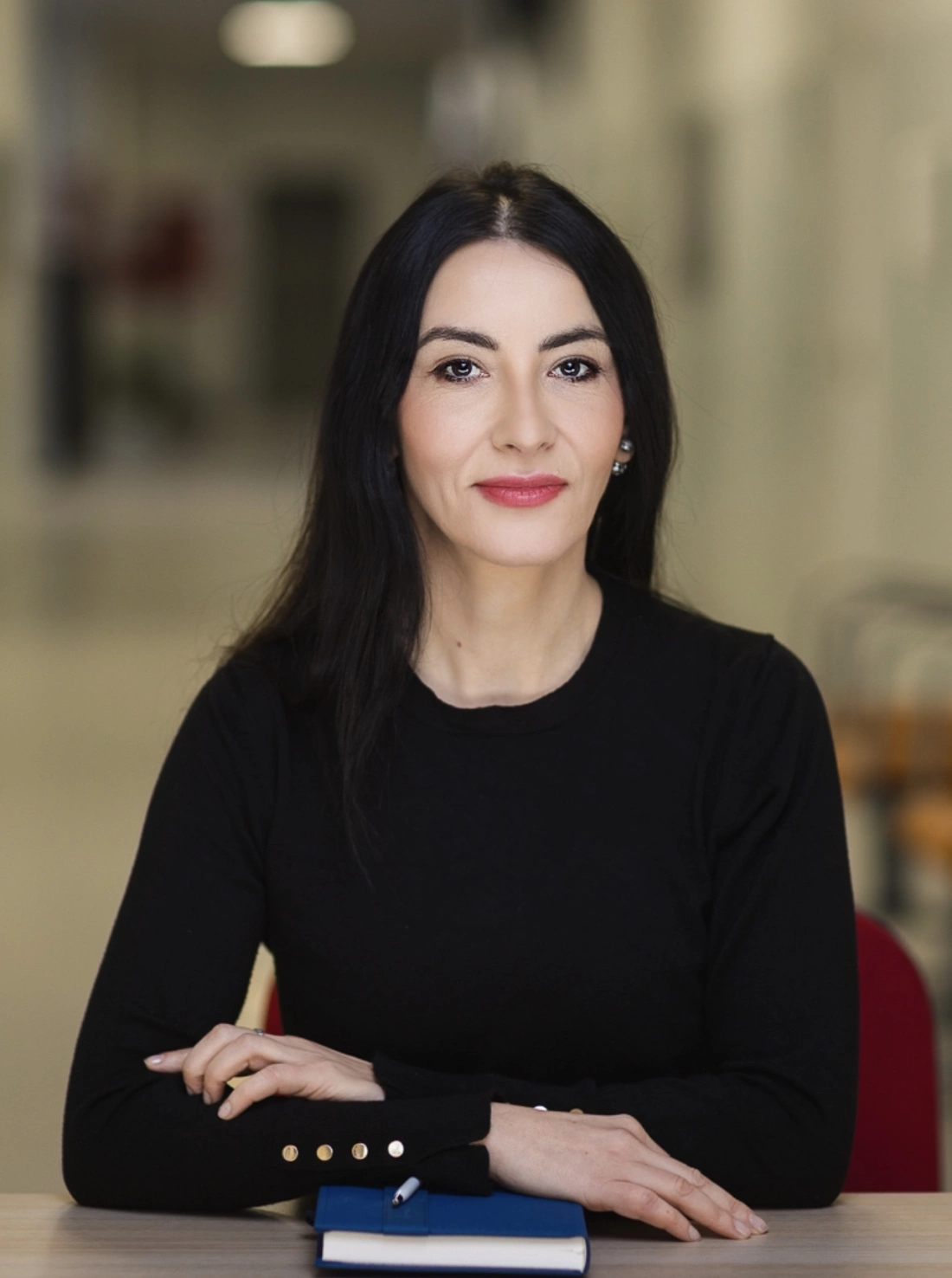
I am a university lecturer and educational experience designer. I specialize in modern didactics, integrating AI tools into the learning process, and fostering future skills. My work is driven by an approach that combines critical and reflective thinking, cognitive flexibility, and creative design of technology-enhanced teaching.
I am a member of the Artificial Intelligence Working Group at the Ministry of Digital Affairs, where I actively contribute to initiatives promoting the conscious and responsible implementation of artificial intelligence in education. My main areas of interest include academic didactics, learning scenario design, the development of meta-competencies, and practical applications of AI in higher education.
2:55 PM - 3:25 PM Artificial intelligence as an alternative and additional learning tool. (Room 2)
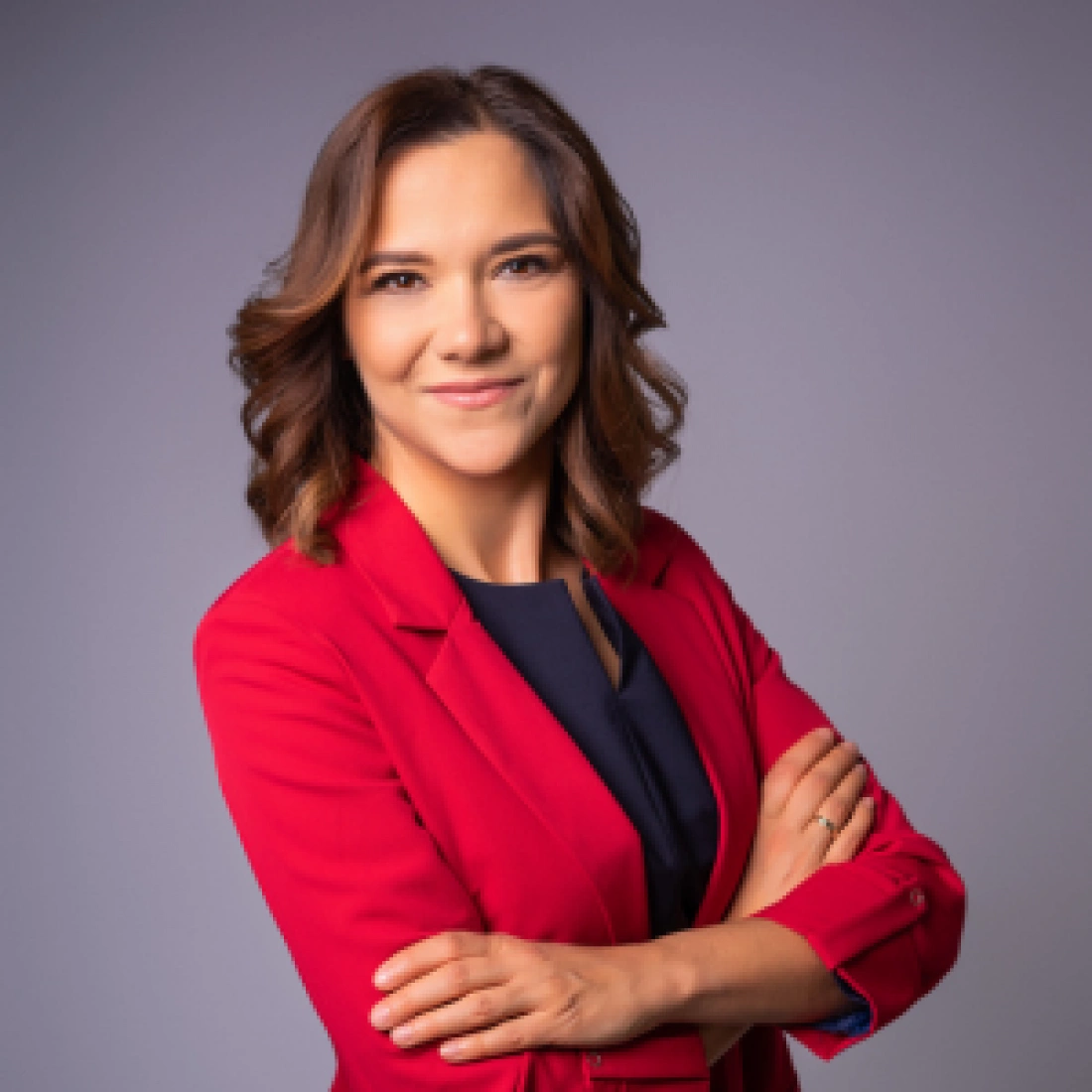
She works at PCG Academia as an Online Education Consultant. She specializes in remote learning and electronic examination solutions provided by Anthology, Inspera, and Panopto. Having worked in various sectors in Poland and the Netherlands, she has gained extensive knowledge of business analysis in IT and the process of implementing information systems. However, she discovered her true passion in the field of IT in education, which is why she continually deepens her knowledge of technologies used in online learning and eagerly shares it with others.
3:25 PM - 3:55 PM Teaching Thinking, Not Repeating: Design Thinking and Artificial Intelligence as Catalysts for Critical Thinking (Room 1)
In the age of AI, education should focus on developing critical thinking, rather than merely transmitting knowledge. During this workshop, participants will explore practical applications of the Design Thinking methodology combined with AI tools in educational practice. The session will showcase examples of problem analysis, formulating meaningful questions, and creative challenge-solving — all essential skills for conscious thinking and action in the information age. The workshop will take the form of an interactive session, incorporating teamwork and guided reflection.

A specialist in designing innovative solutions using the Design Thinking methodology. A practitioner with many years of experience leading workshops and training sessions for students, lecturers, and teachers — all focused on developing creativity, design thinking, and critical thinking. She is the author of academic publications in the fields of creativity and innovative teaching methods, an online course moderator (including on the Moodle platform), and an initiator of educational projects involving AI, LEGO® Serious Play, and various active learning strategies. In her teaching, she combines an empathetic approach with the practical application of tools that foster collaboration, communication, and innovative thinking.
4:05 PM | Conference Summary and Closing
Do you have a topic worth presenting?
If you’re leading a project worth showcasing or would like to share your expert knowledge, submit your presentation proposal for this year’s Academic Quality Forum. Please send your submissions to:
Sabina Ratajczak, PhD
